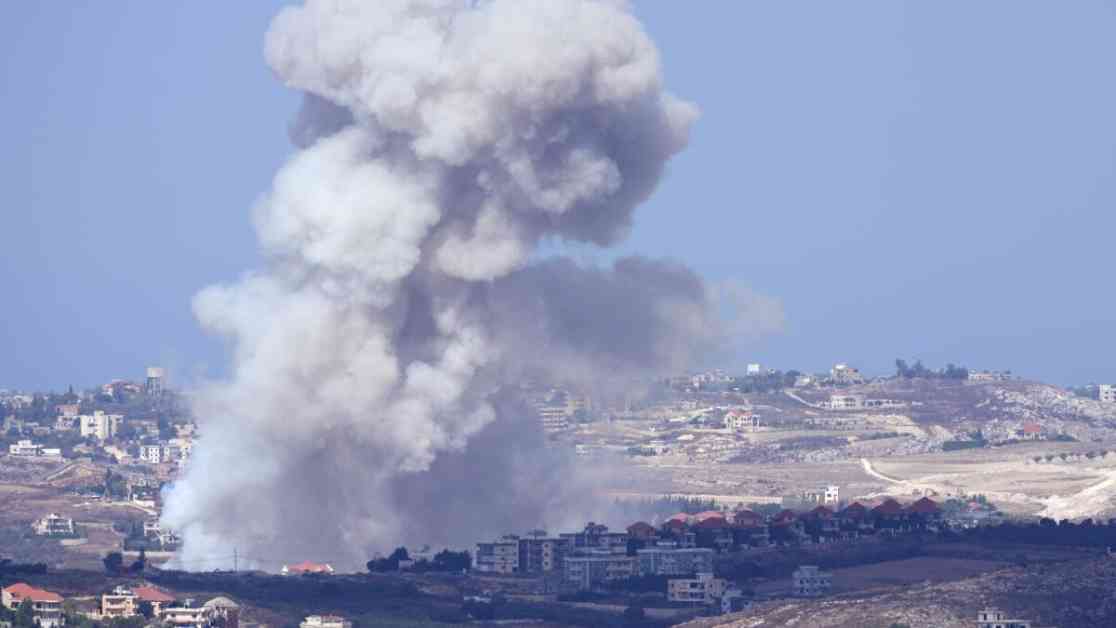Israel’s Escalation with Hezbollah: A Path to Peace or a Road to Destruction?
The recent conflict between Israel and Hezbollah has brought Lebanon to the brink of chaos, with escalating violence and civilian casualties mounting by the day. Israel’s remote detonation of thousands of Hezbollah pagers and walkie-talkies has sparked a series of retaliatory attacks, leading to the deadliest day of Israeli airstrikes against Lebanon in nearly two decades.
While many in the West have marveled at the Israeli intelligence operation that planted the explosive devices among Hezbollah members, the devastating impact on Lebanese civilians cannot be overlooked. The explosions, which killed at least 37 people and injured over 3,000, have left crowded neighborhoods in shambles and instilled fear and trauma in the local population.
Lebanon, a country already reeling from decades of war, economic collapse, and the 2020 Beirut port explosion, now faces the specter of a full-scale war with Israel. The recent airstrikes, targeted killings, and retaliatory rocket attacks have pushed the region to the brink of a wider conflict that could engulf neighboring countries and destabilize the entire Middle East.
The Human Cost of Conflict: Lives Lost and Communities Shattered
The toll of the recent violence on Lebanese civilians has been staggering. From the initial explosions to the subsequent airstrikes and rocket attacks, innocent men, women, and children have borne the brunt of the conflict. Hospitals are overwhelmed with trauma victims, many of whom have suffered life-changing injuries to their eyes and limbs.
The indiscriminate nature of the attacks, with bombs detonating in grocery stores, hospitals, cafes, and residential areas, has left a trail of destruction and despair in its wake. Families have been torn apart, homes destroyed, and communities shattered by the relentless cycle of violence that shows no signs of abating.
One ophthalmologist described the influx of patients with eye injuries as unprecedented, highlighting the sheer brutality of the attacks and the long-lasting impact on those affected. As the death toll rises and the number of displaced persons grows, the need for immediate de-escalation and humanitarian assistance becomes more urgent than ever.
A Call for Ceasefire and Diplomacy: Finding a Path to Peace in the Middle East
The road to peace in the Middle East must begin with a ceasefire in Gaza. As the Biden administration grapples with the complexities of the region and the competing interests of various stakeholders, the need for bold and decisive action becomes increasingly apparent.
Pressing for an immediate ceasefire in Gaza and leveraging U.S. influence to facilitate diplomatic negotiations between Israel, Hezbollah, and other regional actors is crucial to preventing further bloodshed and chaos. The alternative—continued airstrikes, rocket attacks, and escalating violence—will only lead to more suffering, destruction, and loss of life.
It is imperative that world leaders, policymakers, and international organizations come together to find a sustainable solution to the conflict in the region. The people of Lebanon, Israel, and the broader Middle East deserve peace, stability, and a future free from the specter of war and violence.
In conclusion, the path to peace in the Middle East is fraught with challenges and complexities, but it is not insurmountable. By prioritizing diplomacy, dialogue, and cooperation over conflict and confrontation, we can pave the way for a more peaceful and prosperous future for all. Let us work together towards a lasting peace that respects the dignity and rights of all people in the region.



























